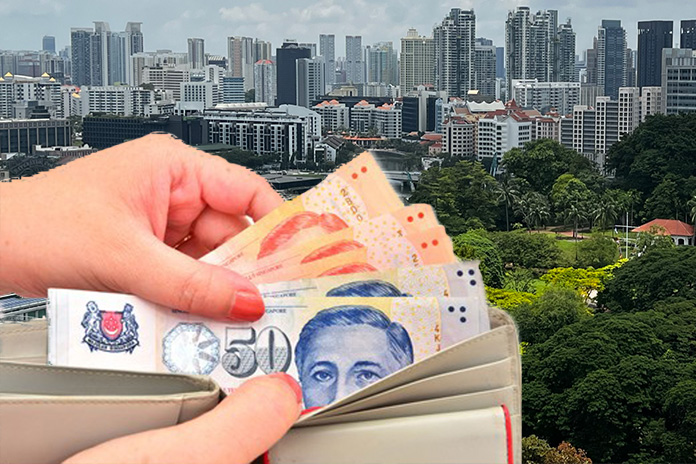
The pandemic taught me many things — mostly that everything I’d learned up to this point was useless.
I suppose one comes to realise this eventually as part of the journey into adulthood. However, I can say with as much certainty as Mr. Benjamin Franklin, that he was not wrong about the only certainty being “death and taxes”.
People died during the pandemic and then taxes went up in relatively quick succession.
Many citizens are familiar with the Goods and Service Tax (GST) in Singapore which was recently hiked to 8%, a 1% increase starting Jan 2023 and to the best of our knowledge today, this is expected to automatically go up to 9% in Jan 2024. All I hope for is that I manage to make more money between now and Jan 2024 to be able to afford my current lifestyle. I presume many other millennials like me have never dealt with an interest rate cycle as well as increasing consumption taxes at the same time.
To put this into perspective, a 1% increase in GST is actually a 14.29% increase in consumption tax paid (an increase of $1 on every $7 of tax that was originally being paid). Similarly, the next increase from 8% to 9% will be a further 12.5% increase (an increase of $1 on every $8 of tax that is currently being paid) in tax paid by the end consumer. The combination of this tax increase and an interest rate cycle has been quite eye-opening and a real kick into the deep end of the pool (for me at least).
Profits and Profiteering
But in asking these questions, I’d like to stop and think about businesses and the impact of the GST increase on their operations and profits. It logically follows that GST registered businesses should just be able to offset GST paid against GST collected, so where is the price increase coming from? Raising prices because of inflation is, I guess expected but there have been various articles and government warnings on how businesses have been raising prices over and above GST increases.
As a student of economics, we learn that prices businesses charge are sticky and that in perfectly (or close to perfectly) competitive scenarios, businesses tend not to raise prices. However, mandated price increases like the GST increase can potentially act as a trigger for businesses to re-price and re-set margins that were being compressed prior to the hike.
Growing up in Singapore, I’ve also come to learn that prices may or may not go up, but there’s no way they ever go down meaningfully — except wages; pay cuts do happen.
While it may be quite abject for anyone to take on the work to figure out if wage cuts are sticky, it looks like some authors have indeed taken up the work to figure out whether VAT increases cause larger than proportional increases in prices. Safe to say, my search online shows that this effect has been observed globally on many occasions but any attempt to empirically test it has proven to be inconclusive. Perhaps some of the best research on these topics comes from Japan given their (previously) persistently low inflation.
Professor Komaki from Osaka University of Economics studying changes the event effect of changes in VAT rates noticed that “the effects are significant in an environment where prices may be easily raised (a high-inflation region)”.
Professor Komaki described several examples in his paper that are definitely worth a read in trying to understand why businesses tend to raise prices over and above VAT/Tax rate changes. Academic papers can be quite daunting to read so here’s a snapshot.
Professor Komaki’s investigation noted that, in a high inflation scenario, prices tend to increase more than proportionally compared to what could be attributed to only the VAT increase.
Without mentioning it outright, the paper notes that businesses tend to use the tax hike as an excuse to increase selling prices to cover their higher costs during this inflationary period.
This inevitably causes a ripple effect down the supply chain. The argument then, that a single percentage point GST increase should only affect the end consumer by the above-mentioned delta doesn’t hold, as each step of the value/supply chain will then choose to set margins in excess of the tax increase — a painfully logical conclusion.

Some people have called for boycotts of merchants who have raised prices a little too much, for example where Toast Box was accused of raising prices in marked excess to the GST increase. Arguably, Toast Box had a good defense to this as they mentioned improving bundle deals as well as adding additional items to their lunch offerings — essentially giving the consumer greater value (not necessarily better value).
So we ask then, is this fair for consumers who have to bear the brunt of the GST hike and the price increases? Is it fair to businesses then?
If anything, this rate cycle — while wildly inopportune — has taught the consumer in me that strict budgeting and saving are necessary if I want to live a counter-cyclical life. If the want is to be insulated from shocks, then belts have to be doubly tightened during times of inflation.
The notion that spending money is necessary to make money, while somewhat true, is a notion of the ‘seemingly’ endless bull market that I grew up in, a lesson I had to unlearn quickly because just like everything else in life, costs can also have inflections — they don’t teach you this in school and I’m fortunate to have learned it at the start of my career.
Swastik Agarwal is a businessman and investor based in Singapore. He was formerly a hedge fund analyst who is now running his own fund investing in public equities, bonds and special situations globally in addition to his family business in global agri-commodity trading.



















